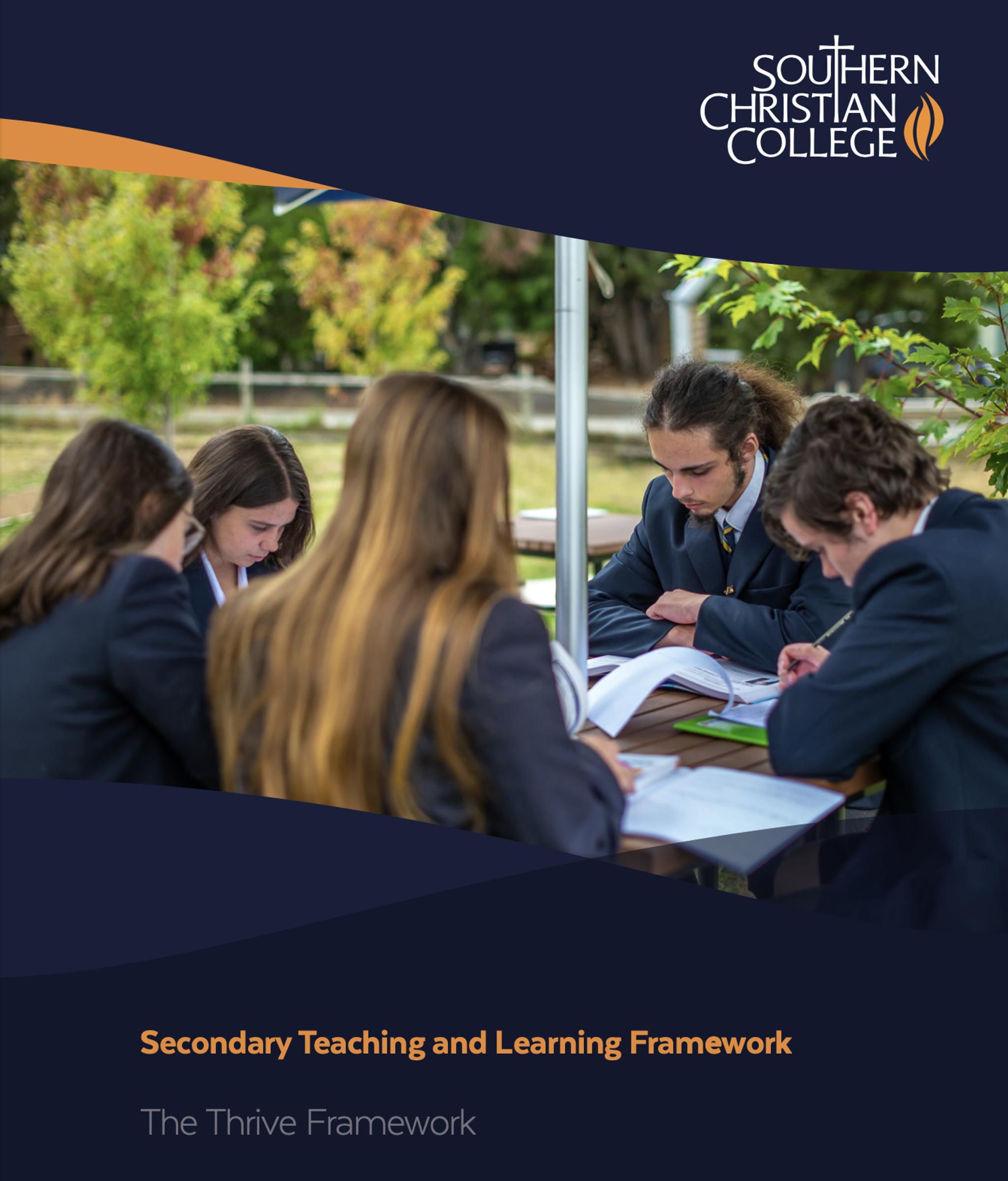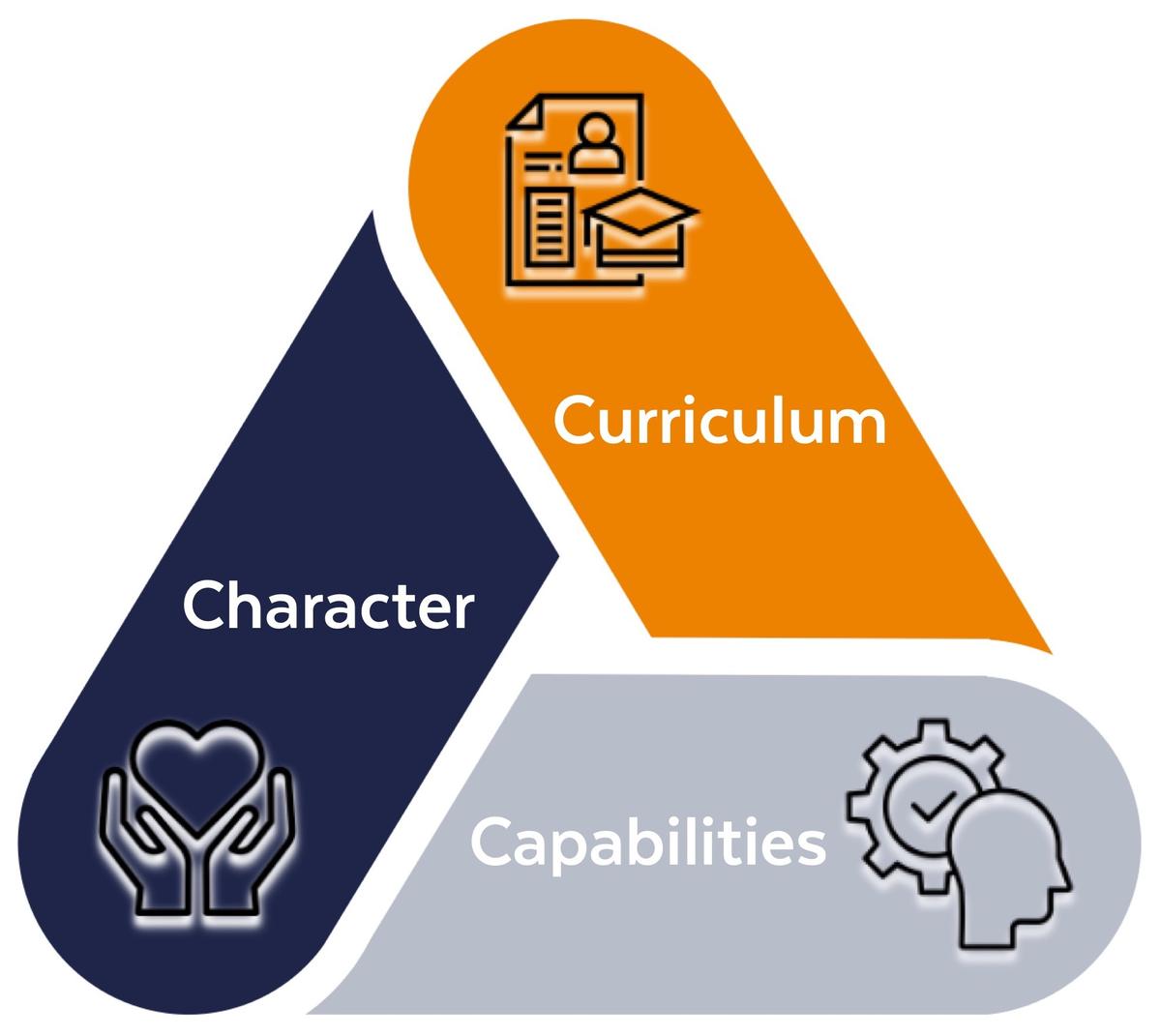Weekly Update - Thrive Framework - Capabilities

Secondary 'Thrive' Framework - Capabilities
This week, I move onto the second element of the new Secondary Framework. Capabilities are the skills that students develop that carry across learning areas. These include:
- Critical and creative thinking
- Digital Literacy
- Ethical Understanding
- Intercultural Understanding
- Literacy
- Numeracy
- Personal and Social Capability
Each of these skills are taught within separate subject areas but students need to then carry that learning into other subject areas. For example, literacy is a skill that is often addressed in English but is necessary in all subject areas. Students’ skill development is being extended and reinforced across all subject areas. They are learning new strategies to support vocabulary acquisition, comprehension and writing skills within areas such as SOSE, Science, Art, Music and Design. It always amazes me what an important part literacy plays in Mathematics.
Recently, we formed a small literacy improvement team that covers Primary and Secondary. The Tasmanian Government announced the rollout of a literacy improvement framework. Our team will ensure the framework is implemented throughout the College but will also explore how we enhance a whole school approach to literacy development. It is exciting to be in discussions with staff as we talk about how we, for example, teach essay writing across year groups.
Next week, I will look at some other examples of how the capabilities are being addressed across subject areas.
Rigour in Learning
Over the past couple of weeks, some of our staff have had conversations with parents about rigour in learning. Some have questioned whether the new Framework will maintain the same level of rigour in learning as the MYP. My simple response would be an emphatic yes. How can I say that with such confidence? There are some aspects of the MYP that support rigour in learning. These include the commitment to applying learning to meaningful and relevant contexts.
This is something we will continue. There is a quote that I often use with staff. ‘Memory is the residue of thought’ (Willingham, 2009). For learning to stick, there needs to something that hooks student attention. Connecting to relevant contexts is one way to achieve this. As a staff team, we are also looking at other ways we can try to grab hold of and maintain student attention, especially when the relevance of learning may not be apparent yet. Recently, our focus has been on providing students with explicit statements of the focus for the lesson and success criteria for them to measure their progress.
The assessment system also supports progressing students from more direct knowledge and skill level learning to higher levels of application. Again, this is something we remain committed to maintaining. Assessments of student learning should be designed to gauge retention of core knowledge and skills but should also provide opportunities to apply learning to new contexts, using higher order thinking skills.
Overall, the most significant contributor to rigour in learning is the culture across the school. While there is always avenues for further growth, feedback I have received from many parents is that our students are well-prepared for future challenges because of the rigour in learning.
I see evidence as we analyse assessment results. I mentioned last term in a newsletter article that what stood out from our NAPLAN results this year was the outstanding growth we saw in students between Year 5, 7 and 9. As we analyse other internal data at the moment, I again see strong growth across year groups with the Secondary. I acknowledge the commitment of our staff who pay close attention to the progress of individual students and challenge them to stretch themselves just a little more.
Jodie Bennett
Principal

